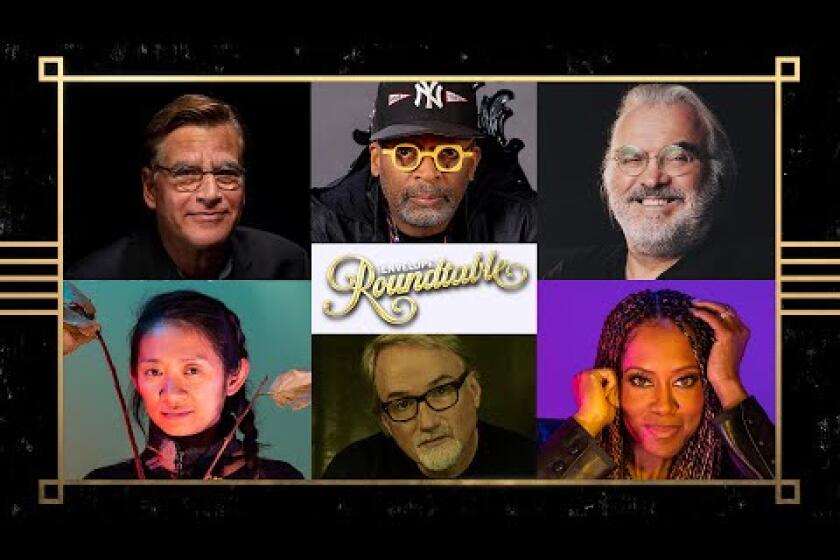Frank Langella feels the power — and its abuse — in playing the ‘Chicago 7’ judge
- Share via
When Frank Langella met with Aaron Sorkin to discuss playing the notoriously biased Judge Julius Hoffman in Sorkin’s docudrama “The Trial of the Chicago 7,” the four-time Tony winner learned how far the value of a rich, varied career in acting can reach. Sorkin told him he’d never forgotten the time his parents took him to see Langella on Broadway.
“Who knew that a little 7-year-old boy would one day give me one of the greatest parts I’ve ever played,” says the 83-year-old actor. “You never know where it’s coming from.”
Recently, Langella got on the phone to discuss the thrill of playing a figure whose fealty to systemic corruption has scary resonance in today’s volatile political climate. He notes, “This kind of monster is very much in our minds these days.”
In courtroom dramas, judges are rarely the good parts. What made Judge Hoffman a great role?
Well, his lack of morality, his total disinterest in being fair, maybe a touch of early Alzheimer’s, and his cruelty. There was nothing redeeming about him. Had Aaron written a scene where I was home with my grandchildren, there may have been something to do in that element. But he didn’t. This man comes in determined to convict. I’ve never played a judge before, but I know what you mean. Most of the time, they say, “Sustained.” But this guy was in the center of it. He wasn’t going to let anybody get the better of him.
When playing Hoffman, did you think of him as the villain who thought he was the hero?
I never do that. I always believe the man I’m playing. You can’t judge the character. You don’t want to settle for anything and wink at the audience and say, “I’m not really like this.” He was really like that, and I loved playing him.
Since you’re a theater stalwart, and this was a role mostly confined to one set, with plenty of sparring exchanges, this had to have felt like being in a play.
It was a very delicious situation, because all of us were there all day for 13 days straight. Every one of us was there because it’s a courtroom, and you never knew what Aaron was going to pick up or grab [with the camera]. So we did, in fact, become this overused word, a “family.” I hate the word, because most families are dysfunctional, and a lot of the films I’ve been on have been dysfunctional families. This wasn’t. Every actor was on form every second. We were all on our toes, and we were all healthily competing. That made it really thrilling.
Did you follow the trial back then?
I was 30. I was only interested in two things: getting good jobs and girls. I had just gotten a divorce. I was on the loose. I was making my movie debut. I was not a good citizen. Now, of course, I can’t resist what’s going on. I watch every second of it.
Do you sense there are Judge Hoffmans everywhere still?
Yes, of course. I certainly think my ex-wife’s divorce lawyer was one of them.
How has this role affected how you look at those who wield power?
Well, I’m afraid I’m a cynic. If you’re a judge, a senator, or a congressman, those perks are incredible. I remember once when we were doing “Dracula” [on Broadway], I won’t say who it was, but one of the most famous politicians in the world came to see it, and his secretary came in early and said, “Is there any way we can get them to start applause as he’s coming down the aisle?” And I said, “No.” He was long retired, but you know, everybody has an ego.
That kind of needy theatricality is all too familiar now.
There is a time, a very important time, to get off the stage. And we both know a lot of people keep going in minor versions of when they had their high.
When you put that robe on and sit at a bench that’s above everyone else, can you sense that power that can get misused?
Without question. One of the greatest things about playing a judge is everybody has to look at you. When I was on camera, the entire room was watching — 300 extras, the major cast members, the men playing the cops, they were there all the time. It is sort of a very interesting power trip.
How have you passed the time in this pandemic?
I’m isolated in my house in upstate New York. I have a close band of friends, equally safe, and we see each other, and I’m writing the second volume of my memoir. It’s not about me. It’s about my reaction to all the famous people I’ve known. You have to be dead to be in the book.
More to Read
From the Oscars to the Emmys.
Get the Envelope newsletter for exclusive awards season coverage, behind-the-scenes stories from the Envelope podcast and columnist Glenn Whipp’s must-read analysis.
You may occasionally receive promotional content from the Los Angeles Times.











